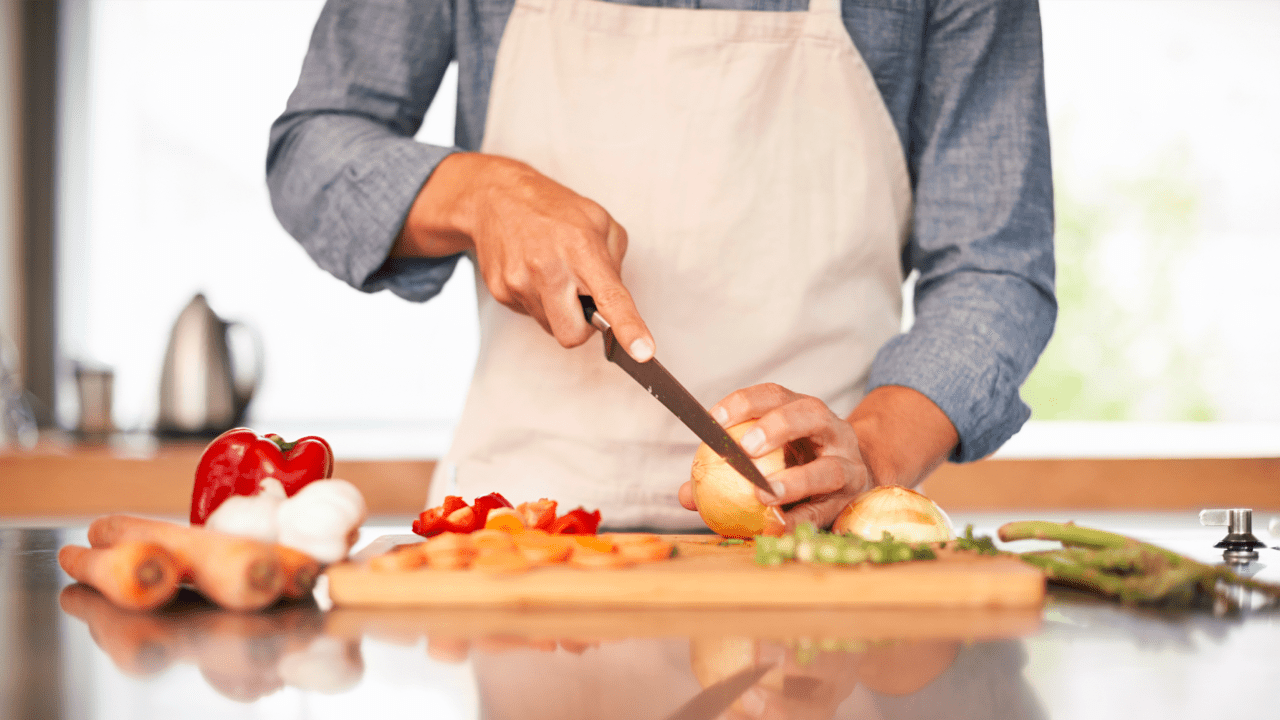Having reduced my consumption of meat a lot for a year now, I get a lot of questions about my new diet. Is it to lose weight? Do you just eat vegetables? Doesn’t your plate look empty? Did you become a vegetarian?
The answer to all these questions is a big NO.
If you are thinking of going vegan, vegetarian or simply reducing the amount of meat you eat, I would say CONGRATULATIONS, you are doing something great for yourself and our planet!
So now that the decision is taken, where do you start?
Most of us eat meat every day (or every meal even) from a very young age, which means it seems impossible to get away from it. What would you be eating? Isn’t it boring after a while? That were some of the many questions I was asking myself before I took this road.
Being conscious of our meat consumption and wanting to reduce it or go without it is a big diet change, and just like me a year ago you must have tons of questions. Questions are good, because food is a HUGE part of our lives (at least for me, I blame it on my French DNA) going down this path needs to be an informed decision for it to last. Perhaps you can start by watching a few documentaries about going vegan/vegetarian or the meat industry? Forks over knives, Cowspiracy and Food Inc are my favourites.
Having been through this change a year ago I have decided to write this blog post as there are a couple things I wish I knew before I embarked on this new journey:
1. ASK YOURSELF WHY

This is a big decision. You can go back on it anytime but if you are ready to change or even considering it, please ask yourself why. Is it because of the horrible way the animals are treated? Is it because meat can be full of hormones, antibiotics and you do not want to eat that? Is it because intensive breeding is killing the planet? Is it because you simply can’t digest meat? Is it all the above?
Knowing why you are doing this is paramount. As the transition can sometimes be challenging, it is always good to remind ourselves why we do what we do!
2. BE PREPARED TO DEBATE

Because meat is such a big part of our everyday diet it is hard to go vegetarian/vegan without everyone else noticing it. Most of the time people will assume you are an animal rights activist. To avoid any misjudgment, explain your food choices to everyone who wants to hear it.
Quick tip: As much as you are excited about your new lifestyle, avoid preaching it to every single carnivore friends you meet. Just like quitting smoking or following a religion, going vegetarian or vegan is a personal choice that should be taken for reasons that resonate with YOU, don’t impose this on others around you or family, unless they show interest.
Plus let’s be honest, if you go vegetarian/vegan and preach it to all your friends they might think you are part of a sect, and they might forget to invite you to the next dinner party!
3. DON’T BE AN EXTREMIST

This is a big change so don’t be extreme about it. Just like the saying Rome wasn’t built in a day, don’t pressure yourself to go vegan in a month. I would highly recommend taking it step by step to make the transition smoother. Perhaps start with meatless Mondays, then become vegetarian 3-5 days a week and see from there?
If you realise along the way that you still want to eat meat or fish once in a while do not feel bad about it. Every step towards a reduction of meat / fish consumption is amazing so stay where ever you feel comfortable.
Good news, vegetarianism comes in different shades, so you can subscribe to the diet that suits your needs.
Let’s list a few ways to eat less meat nowadays:
Vegan: Take off everything that comes from animals, whether it is meat, fish, dairy, eggs, even honey!
Vegetarian: Take off all meat & fish from your diet. However, you are still “allowed” to eat diary, eggs and honey.
Pescitarian: Take off everything that comes from animals living on land – but you can eat everything that comes from the sea!
Flexitarian: Someone who switches between a vegetarian and non-vegetarian diet.
Pick and choose the one that suits you best – and remember this is not a race!
4. BE PREPARED TO COOK MORE

It can be hard to find good vegetarian options in restaurants, you will most likely end up cooking and eating at home more. That’s not a bad thing but you just have to be ready for it. Buying more groceries and cooking them at home takes some time, organisation and will require a bit of cooking skills.
On the bright side, there are so many benefits of eating at home: you are more relaxed, you know what is in your food, you know the quality of the ingredients and you save money from that nasty take away food!
5. MAKE IT FUN

When people think about a vegetarian or a vegan meal 9 times out if 10 they will think about a salad. Let’s be real: you DO NOT have to eat only salad for the rest of your life. That would be really boring! Creating original meals full of flavours without using meat will be the key to success for your new diet. We have a big emotional attachment to food so make vegetarian/vegan food taste great and you will stick to it, it is as easy as that! There are so many delicious vegetarian / vegan recipes out there, buy yourself a nice cookbook or have a look online and start cooking fun healthy things at home!
6. YES YOU CAN EAT OUT TOO

What I hear the most when someone is considering going vegan or vegetarian is: What about my social life? Will I still be able to eat out? I understand: no one want to be the annoying person who constantly ask for a change in the menu, and you do not want to become the one we don’t invite to dinner parties because it is just way too hard to accommodate you.
First of all, there is always something on the menu that is vegetarian or can become vegetarian if you take out the meat part of it. Most of the waiters will be ok taking out meat from your meal as it is most likely the most expensive part of it. If they are really nice they may even ask you if you want anything else to “replace” the meat! In Asian cuisine meat is rarely the star of the show and you can find tofu or vegetarian versions of most of your favourite dishes – even pork belly!
You can also invite your friends to try out new places. I have invited my friends to a vegan Thai restaurant and they absolutely loved it! As veganism / vegetarianism is more and more common, people are getting used to it. Trust me, it is not that hard!
7. YOU WILL ADD LOTS OF FOODS TO YOUR DIET

Think of it this way: going vegetarian should be as much about what you’re adding to your diet as it is the foods you’re taking away. As long as you eat a variety of foods and you keep it fun and tasty, it’s not hard to eat a vegetarian diet and get the nutrients you need. But if your regular weekday meal is meat-and-potatoes and you simply take off the meat, you’re left with—well, potatoes. And that’s not a meal, since it’s lacking in protein and fiber, two nutrients that make you feel full and help keep you from overeating (and gaining weight as a result), among other important roles. If you’re shifting to a vegetarian diet, add more foods to keep you full and healthy, like veggies, nuts, grains and fruits. If you feel like this is too hard to handle, you can always consult a nutritionist to get balanced meals.
8. YOU WILL THINK IN SUBSTITUTES
When cutting down meat from your diet, you have to make sure you are still getting enough protein, iron, calcium, vitamin D and B12. How? Think substitutes! There are tons of natural ways to get all these nutrients in your diets, and weird enough they are all available in Singapore!
Protein: (The one everybody thinks about) Think edamame, broccoli )yes vegetables are also rich in protean), beans, seeds, nut butters.. almond butter (my absolute favourite) is full of protein and fully vegan while if you’re eating dairy, greek yogurt and cottage cheese can be saviours too. Try to avoid protein powder if you can as it can be highly processed and full of sugar!
Calcium: Think about kale (your new BFF), broccoli, spinach, soybeans and almonds.
Iron: You will find plenty of iron in oatmeal and whole-wheat bread, beans, chickpeas and all kind of lentils (I found out there are a LOT!), dark green veggies like spinach, chard, Brussels sprouts and broccoli, and of course meat-substitutes like tofu and tempeh
Vitamin D: The sun (not hard to find here!) or egg yolks, shiitake mushrooms, almonds, tofu..
Vitamin B12: Almond, oat or rice milk are usually fortified in Vitamin B12, or you can have feta cheese and cottage cheese if you eat dairy.
Going vegetarian/vegan is a lot easier than we think. After you go through the initial transition period, and after holding on to it despite difficulties and roadblocks, you won’t regret a thing. I can testify first hand that I feel a lot healthier, I digest better, I feel a lot better towards my fellow animals and I think a lot clearer. Trust me once you experience the goodness of this new diet and realise that it is not that hard after all. Remember not to be hard on yourself, at times you may feel like some sort of meat, and that’s the secret to any change, be flexible with yourself, don’t beat yourself up, and work towards your goals.
If you have more questions or if you need extra help please feel free to contact me!
Alicia xx


